New COVID Guidelines for International Students Who Are Entering Canada in Next Few Months
We understand the uncertain times that are around us. This might make you all curious whether and when you will be able to reach Canada. International travel has become more difficult as a result of COVID-19, and while we absolutely can not wait to invite you to Kensley College, we would like to make sure you have by far the most up-to-date and reliable details about cross-border travel so that you can prepare accordingly.
Restrictions and exemptions for international students travel:
International students would be deemed to be joining Canada for a non-discretionary and non-optional reason, regardless of which country they come from or whether they arrive by land or air, if:
[These entry requirements for international students are in force as of October 20, 2020, at 23:59.}
*Immigration, Refugees and Citizenship Canada (IRCC) has confirmed that all post-secondary designated learning institutions (DLIs) in Québec are approved. Kensley college is one among them.
You must satisfy all of the entry criteria mentioned above in order to join Canada. Allow no travel arrangements until you've completed all of the entry requirements (e.g. your study permit application has been approved and you have a letter of introduction).
For full details, please see IRCC’s news release and IRCC’s webpage for international students.
The travel restriction that applies to entry to Canada from the US is currently in effect until April 21, 2021, but maybe extended.
The travel restriction that applies to entry to Canada from a country other than the US is currently in effect until April 21, 2021, but maybe extended.
In addition to meeting the travel restriction requirements for international students mentioned above, international students will also have to respect certain measures in order to enter Canada. These measures differ depending on if you are entering Canada by air or if you are entering Canada by land. Please see below for step-by-step instructions to follow if you plan on travelling to Canada by air or if you plan to travel to Canada by land.
Travelling to Canada by air
For full details, the Government of Canada has provided a Flying to Canada Checklist.
Step 1: Take a pre-departure COVID-19 test within 72 hours of your flight’s scheduled departure to Canada
Pre-departure COVID- 19 testing requirement for all air travellers
As of January 7, 2021, all travellers aged 5 years and older entering Canada by air must present airline officials with proof of a negative COVID-19 molecular polymerase chain reaction (PCR) or Loop-mediated Isothermal Amplification (LAMP) test taken within 72 hours prior to their flight’s scheduled departure to Canada. Air passengers without proof of a negative test result will not be allowed to board their flight to Canada. See the Canadian government's Flying to and within Canada webpages for more details.
For the full announcement and FAQs, please see Transport Canada’s Pre-departure COVID-19 testing and negative results for air travellers coming to Canada webpage.
Step 2: Book a three-night stay for you and any accompanying family members at a government approved hotel before your departure to Canada All travellers, with limited exceptions*, will be required to reserve their three-night stay at a government-authorized hotel prior to their departure to Canada.
*Important: Unaccompanied minors (i.e., a person who is less than 18 years of age) are exempt from the mandatory three-night stay in a government approved hotel. However, unaccompanied minors must still comply with all other entry requirements.
Step 3: Download the ArriveCAN App and submit the required information before your departure to Canada
All travellers entering Canada by air, must use the ArriveCAN app to submit the following required information prior to boarding their flight:
For more information, please see the Government of Canada’s news release and ArriveCAN information for all travellers (including download links)
Step 4: Gather your travel documents
When entering Canada make sure that you bring all the following documents with you:
*Note: If you are a US citizen or US permanent resident, you may apply for your study permit upon entry to Canada.
Step 5: Take a COVID-19 test upon arrival to Canada and quarantine at a government-authorized hotel
As of February 21st, 2021 at 11:59 pm ET, all travellers, with some exceptions*, will be required to take a COVID-19 test upon arrival to Canada and quarantine for three nights at a government-authorized hotel at their own expense while they wait for the results. The estimated cost to travellers could be up to $2,000.
For more information, see the Government of Canada’s news release
*Important: Unaccompanied minors (i.e., a person who is less than 18 years of age) are exempt from the mandatory three-night stay in a government approved hotel. However, unaccompanied minors must still comply with all other entry requirements.
Step 6: Within 48 hours of your arrival to Canada, submit the required information through the ArriveCAN app
Within 48 hours of entering Canada, all travellers will be required to submit the following information to the Canadian government through the ArriveCAN app:
Step 7: After you have completed your 3-night quarantine in a government-authorized hotel, continue the rest of your 14-day quarantine
If the results of your COVID-19 test that you took upon arrival to Canada are negative, you can continue the rest of your 14-day quarantine at home.
If the results of your COVID-19 test that you took upon arrival to Canada are positive, you will be required to complete your 14-day quarantine at a designated government facility.
Step 8: Submit to the second COVID-19 test towards the end of your fourteen-day quarantine. More details to come
Step 8: Submit to the second COVID-19 test towards the end of your fourteen-day quarantine. More details to come.
IMPORTANT RESOURCES AND INFORMATION for travellers entering Canada by air:
[Reference from Government of Canada’s news release]
Travelling to Canada by land
For full details, the Government of Canada has provided a Driving to Canada Checklist.
Step 1: Take a pre-departure COVID-19 test within 72 hours of when you will be crossing the border into Canada
As stated in the Government of Canada’s news release:
- As of February 15, 2021, all travellers arriving in Canada by land, with some exceptions, will be required to provide proof of a negative COVID-19 molecular test result taken in the United States within 72 hours of pre-arrival, or a positive test was taken 14 to 90 days prior to arrival.
Step 2: Download the ArriveCan App and submit the required information before your departure to Canada
As of February 21st, 2021 at 11:59 pm ET, all travellers entering Canada by land, must use the ArriveCAN app to submit the following required information:
- Their travel and contact information;
- Their quarantine plan (unless exempted under conditions set out in the Mandatory Isolation Order); AND
- A COVID-19 symptom self-assessment.
Travellers arriving by land before February 22, 2021 are strongly encouraged to use the ArriveCAN app to avoid delays and to reduce person-to-person contact.
Travellers arriving by land who do not use ArriveCAN will have to submit their information orally to a border officer or fill out a paper form at their Port of Entry.
Step 3: Gather your travel documents
When entering Canada make sure that you bring all the following documents with you:
- a valid study permit or a copy of your Port of Entry Letter of Introduction (study permit approval letter)*;
- a copy of a valid letter of acceptance from Kensley and proof of enrolment, if you are returning student;
- proof that you have enough money to support yourself during your stay in Canada;
- valid immigration medical examination results if you are coming from a designated country or territory (meaning a country or territory for which they are required), or if you will be in close contact with people, for example as:
- a medical student
- a student in a health sciences field who will have placements in health-care or home-care settings
- an education student who will have placements in primary or secondary schools
- your CAQ (or CAQ approval letter);
- a valid eTA or Temporary Resident Visa (TRV). * ONLY U.S. Citizens are exempt from needing an eTA or a TRV. For more information on entry requirements, see IRCC’s website;
- your passport; AND
- all other supporting documents you included in your study permit application.
*Note: If you are a US citizen or US permanent resident, you may apply for your study permit upon entry to Canada.
Step 4: Take a COVID-19 test upon arrival in Canada
As stated in the Government of Canada’s news release:
- As of February 21st, 2021 at 11:59 pm ET, travellers entering Canada at the land border will be required to take a COVID-19 molecular test on arrival.
Step 5: Quarantine for 14 days and within 48 hours of your arrival to Canada, submit the required information through the ArriveCAN app
Within 48 hours of entering Canada, all travellers will be required to submit the following information to the Canadian government, either through the ArriveCAN app or by calling the 1-833-641-0343 toll-free number, if they did not use the app:
- Confirmation that they have arrived at their place of quarantine or isolation; AND
- A daily COVID-19 symptom self-assessment during their quarantine period.
For more information, please see the Government of Canada’s news release, ArriveCAN information for all travellers (including download links), and information specifically for travellers entering Canada by land.
Step 6: Submit to the second COVID-19 test towards the end of your fourteen-day quarantine.
As of February 21st, 2021 at 11:59 pm ET, all travellers entering Canada by land will have to take a second COVID-19 test towards the end of their fourteen-day quarantine. More details to come.
-----------------
Important Government Resources on Travel Restrictions
- Flying to Canada Checklist and Driving to Canada Checklist provided by the Government of Canada
- For general information on how Covid-19 is impacting Canada, see the Government of Canada’s Coronavirus disease (COVID-19) page
- For information on travel exemptions and restrictions for international students, and the impact of COVID-19 on international students see IRCC's website: Coronavirus disease (COVID-19): International students and Students – Travel to Canada: COVID-19 program delivery
- For information on the impacts of Covid-19 on travel and immigration, including the updates on the new mandatory hotel stay for all air travellers arriving in Canada see COVID-19: Travel, quarantine and borders
- For information on flying to Canada, see: Flying to and within Canada
- For information on whether or not you can travel to Canada, use the Find out if you can travel to Canada tool
- For information on travel restrictions for non-Canadian travelers, see the Government of Canada’s website: Travel restrictions in Canada: Entry, borders and transit
- For information on travel restrictions in Canada, mandatory isolation or quarantine, entry, borders, transit and more, see Travel restrictions in Canada
- For information and advice for travellers entering Canada, see IRCC’s website: Coronavirus disease (COVID-19): Travel restrictions, exemptions and advice
- For information on air travel and border measures, see IRCC’s website: Travel restriction measures: COVID-19 program delivery
- For information on COVID-19 testing requirements for travellers, see the Government of Canada’s website: COVID-19 testing for travellers coming into Canada
- The Government of Canada has the following information about mandatory quarantine and isolation: Mandatory isolation or quarantine and For travellers without symptoms of COVID-19 returning to Canada










